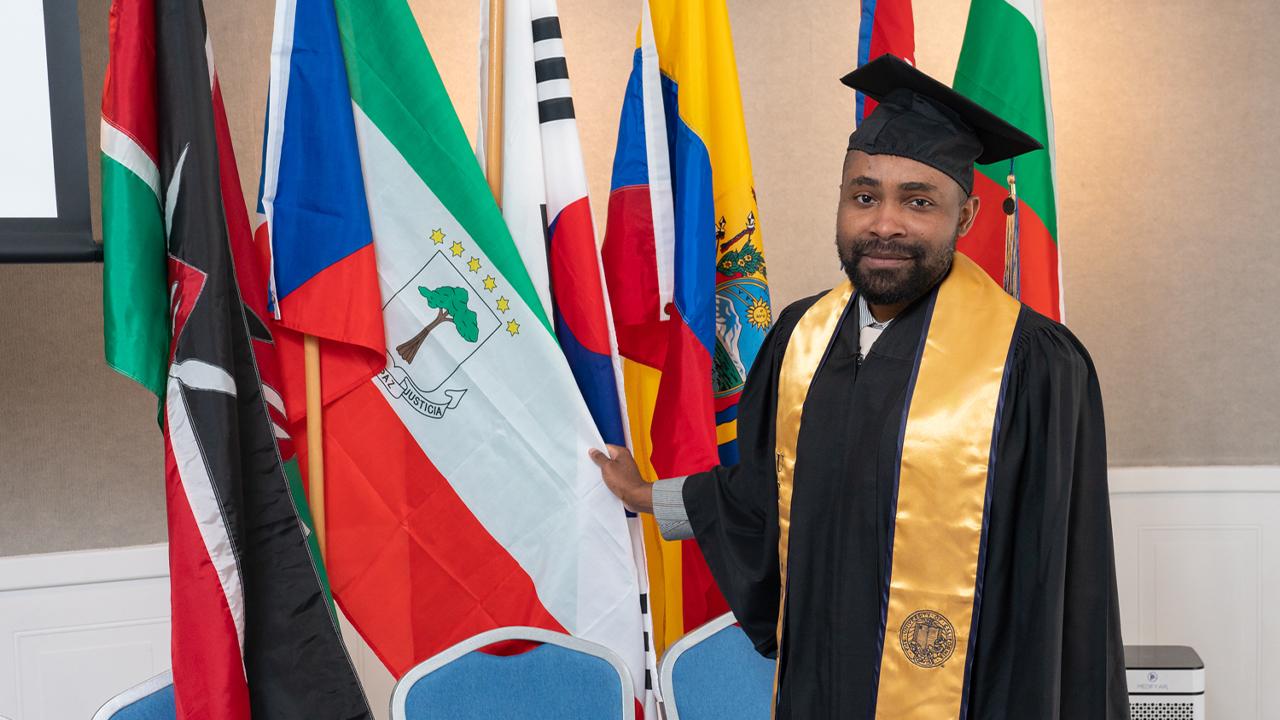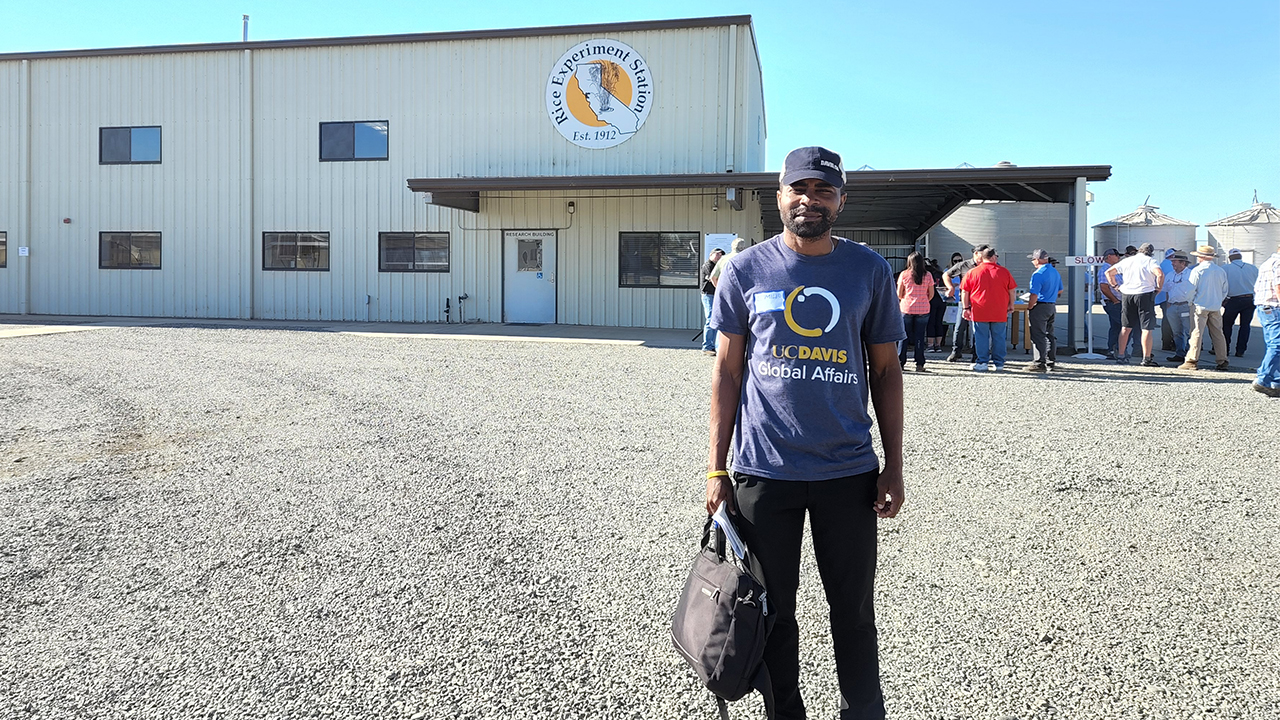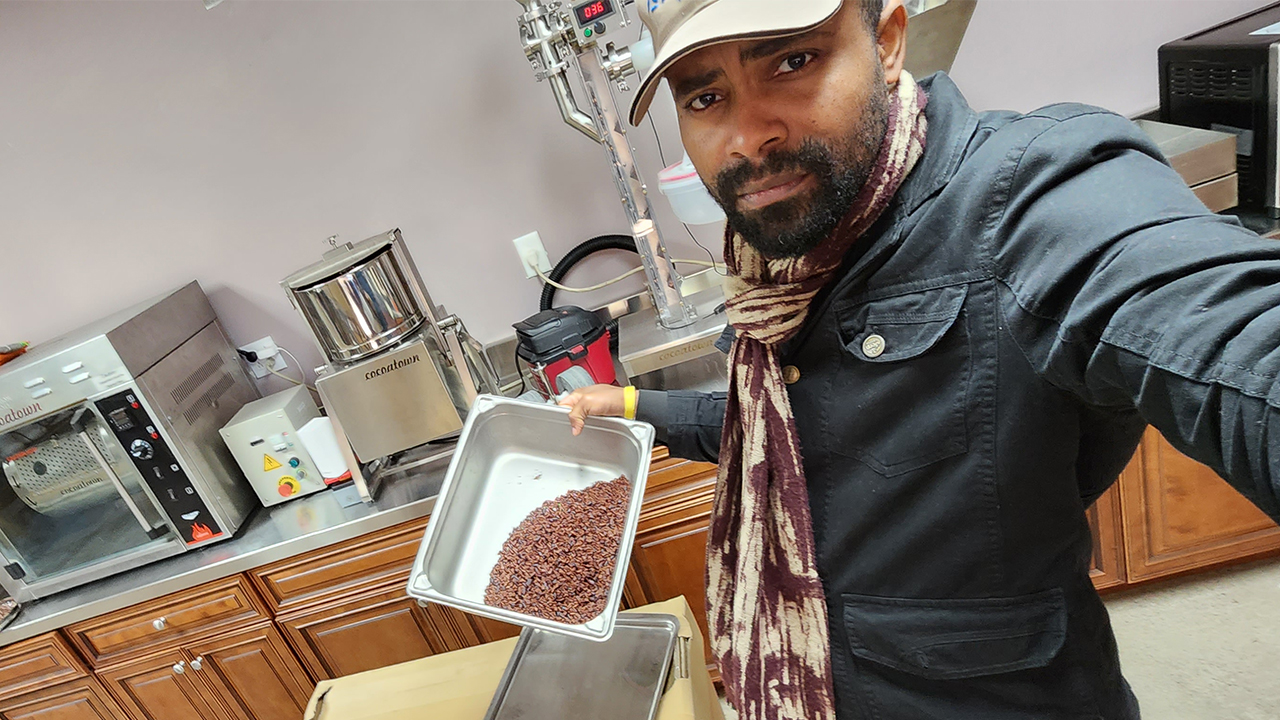
Working to Contribute to Agricultural Modernization in Equatorial Guinea
I am an official at the Department of Extension of the Ministry of Agriculture of Equatorial Guinea, and I am involved in extension work, though not formally trained in it. My work entails empowering the farmers through trainings and projects; I also conduct research to produce data that can lead to informed policies in the sector.
I hold a bachelor's degree in agricultural enterprises management from the National University of Agriculture of Honduras and a master’s degree in agricultural economics and management from Hebei Agricultural University, China. I have also studied agronomy at the National University of Equatorial Guinea, which helps me better understand agricultural issues as compared to my colleagues who majored in agri-economics or agribusiness. While participating in the Humphrey Fellowship Program, I am also finishing my Ph.D. in agricultural economics and management at Hebei Agricultural University, China.

My Ph.D. research area of interest is in agricultural economics policy, and my thesis includes the agricultural modernization in Equatorial Guinea (EG) and aims at responding to questions such as—in the context of EG—which policies are necessary to modernize agriculture for sustainable economic growth. These questions, although formulated at a macro level, are also explained at the grassroots level, where extension work plays a cornerstone role. This is how my academic background links to my current work.
Equatorial Guinea is such a particular economy that although the agricultural GDP is tiny and the bulk of the population is considered urban, many people still rely on subsistence agriculture. Moreover, despite Equatorial Guinea being traditionally an agrarian economy, the discovery of oil in the 1990s has transcended it into a single-sector economy of oil as well as a net food importer, which subjects it to high macroeconomic vulnerability.
To help improve the living standard of people engaged in subsistence farming, improve food security, and lay the basis for economic diversification, the modernization of agriculture is one of the best strategies. Therefore, in my Humphrey project at UC Davis, some of my main objectives have been to pick relevant experiences and learn difficult skills that will help me improve my extension work and conduct better research.
In fulfilling these objectives, for example, I have conducted an internship at Cocoatown, a company based in Atlanta that specializes in manufacturing innovative equipment for cocoa processing from tiny batches suited for small-scale farmers. Cocoa is one of the most important crops in Equatorial Guinea and learning about its processing is very important. I am looking forward to visiting other organizations involved in cocoa processing and improvement.

At UC Davis, I have attended courses such as International Agricultural Development, Project Management, Geographic Information Systems (GIS), International Development and Extension. Furthermore, I have built considerable contacts with professionals on campus and from other places across the United States, as well as extensive connections with other international professionals, including Humphrey fellows from around the world, for future partnerships.
Lastly, during my stay in Davis, I have interacted with American people, communities, families and students; I have been invited to eat turkey on Thanksgiving, picnic in Lake Tahoe, day trip to Stinson Beach and so much more. I am doing my best to enjoy the remaining time of the program. Besides my job, one of my plans after leaving here is to start a small non-profit space/organization where I can leverage my off-office hours with other local young professionals to work on small projects that can contribute to the agricultural sector.